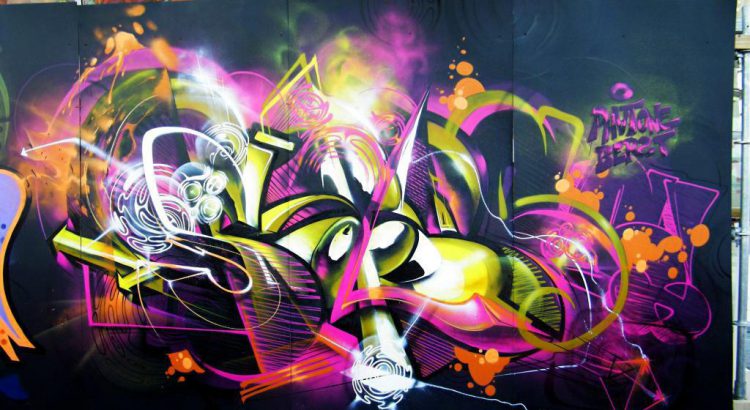
After a deadly clinical trial, will immune therapies for cancer be a bust?
A group of killer T cells surround a cancer cell. NIH
mmune therapies have been hailed as the future of cancer treatments, with fresh drugs racking up excellent clinical results by turning the body’s natural defenses on tumors.
But Thursday’s news that three patients died in a trial of one such treatment has astonished oncologists and biotech investors, casting doubts on what looked like a blockbuster fresh treatment to fighting cancer.
Here’s a rundown on the fatal trial and what it means for the rest of the field.
What happened?
Juno Therapeutics, one of three companies racing to be very first to market a fresh type of immunotherapy, exposed that the Food and Drug Administration put a improvised hold on its lead clinical trial after three deaths related to full salute in the brain.
The treatment in question is called a CAR-T, and it’s made by extracting patient’s immune cells, genetically engineering them to seek out cancer’s telltale footprints, and then reinjecting them into the blood.
CAR-T therapies had run into safety issues before, but nothing like this. Now Juno and its rivals — Kite Pharma and Novartis — are facing heightened scrutiny, as no one seems to be able to explain just why this happened and why it won’t happen again.
What does this mean for immunotherapy?
Very first, it’s significant to understand that immuno-oncology is not a monolith. The very first generation of drugs that corset the immune system to fight cancer is already approved by the FDA and is gaining broader use each year.
“It’s the largest discovery in oncology in the last decade or two,” said Michael Schmidt, a biotech analyst at Leerink Playmates. No matter what happens with CAR-T therapies, “the promise of immunotherapy is undoubtedly intact.”
There are dozens of approaches to immuno-oncology, designed to attack various cancer-related targets and work in concert with existing drugs. CAR-T is just one arrow in a rapidly expanding quiver for oncologists, and even if the field finishes up being less revolutionary than scientists once thought, no one is questioning the broader idea of using the immune system to battle tumors.
So is CAR-T a bust?
Hardly. The field has already generated lots of data in which engineered T cells have led very sick patients into lasting remissions. But the technology is only a few years old, and scientists are still piecing together its safety and efficacy.
“We’ve treated hundreds of patients, which is amazing, but hundreds of patients isn’t thousands of patients, so there’s still a lot to learn,” said Dr. Stephan Grupp, an oncologist at the Children’s Hospital of Philadelphia who has investigated Novartis’s CAR-T therapy.
But what about the deadly brain erection? Grupp said that hasn’t been a prominent side effect in any CAR-T data he’s seen, and certainly not a fatal one. Patients getting modified T cells often report neurological side effects like confusion and seizure, Grupp said, but in the vast majority of cases, those are reversible.
It’s unlikely to say just what happened with Juno’s therapy until all the trial results are available, Grupp said, but so far, he sees no reason to fret about the future of CAR-T.
And that tends to be the refrain among scientists, who, being scientists, often take a “We’ll see” treatment to evolving science.
But over on Wall Street, patience is firmer to come by. Both Juno and Kite witnessed their share prices drop on Thursday as the market grapples with what to make of the latest safety scare.
“Investors right now, I think, are kind of — and deservedly — on pins and needles for the next few weeks as the FDA looks at this,” said Brad Loncar, a Juno investor who founded a Nasdaq-traded fund focused on immunotherapy.
The fear is that the FDA will take a dim view of the entire CAR-T class, slowing down the progress of each program and forcing companies to delay their expected filings, as Juno already has.
But in the best-case script, Thursday’s news presents a Juno-only problem.
Before injecting patients with CAR-Ts, oncologists very first administer rounds of chemotherapy to clear out underperforming T cells and make way for the genetically modified fresh ones. Juno’s problem, according to management, is that it added a 2nd chemo agent to its pre-CAR-T cocktail in an effort to amplify results. The three fatalities all came from the double-chemo group, Juno said.
That added chemo agent, fludarabine, has been used in other CAR-T trials — including with other Juno products — and has never been tied to fatal brain full salute. Scientists proposing what could be the very first human examine using CRISPR to treat a disease also plan to use fludarabine to pretreat patients before administering a CAR-T therapy of their own.
So, the theory goes, Thursday’s shocking announcement is but a bump in the road for one program at one company, not a fraying fiber that will undo the entire CAR-T hypothesis.
